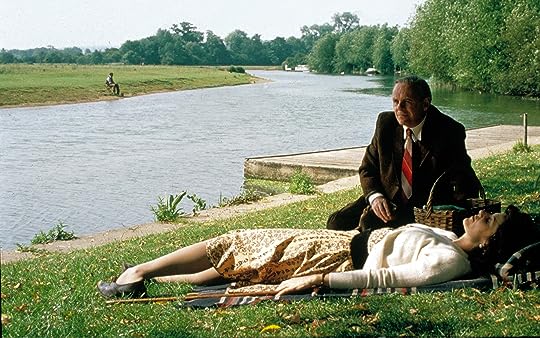What do you think?
Rate this book


76 pages, Paperback
First published January 1, 1961
No one ever told me that grief felt so like fear. I am not afraid, but the sensation is like being afraid. The same fluttering in the stomach, the same restlessness, the yawning. I keep on swallowing. At other times it feels like being mildly drunk, or concussed. There is a sort of invisible blanket between the world and me.
An odd byproduct of my loss is that I’m aware of being an embarrassment to everyone I meet. At work, at the club, in the street, I see people, as they approach me, trying to make up their minds whether they’ll ‘say something about it’ or not. I hate it if they do, and if they don’t.
At first I was very afraid of going to places where H. and I had been happy – our favorite pub, our favorite wood. But I decided to do it at once, like sending a pilot up again as soon as possible after he’s had a crash. Unexpectedly, it makes no difference. Her absence is no more emphatic in those place than anywhere else. It’s not local at all…Her absence is like the sky, spread over everything.
This is one of the things I’m afraid of. The agonies, the mad midnight moments, must, in the course of nature, die away. But what will follow? Just this apathy, this dead flatness? Will there come a time when I no longer ask why the world is like a mean street, because I shall take the squalor as normal? Does grief finally subside into boredom tinged by faint nausea?









از هر چشم اندازی که به مرگ بنگریم، بدین معنی است که تمام تجربیات به پایان رسیده اند و مربوط به قلمرو گذشته اند و گذشته،گذشته است. معنی زمان نیز همین است،زمان عنوانی دیگر است برای مرگ و بهشت نیز...بهشت نیز وضعیتی است که تمام چیزهای پیشین درگذشته اند
کسی که صرفا انسان باشد و چیزهایی را بگوید که عیسی گفت، نمی تواند معلم بزرگ اخلاق باشد. یا باید دیوانه و مجنون باشد - مثل کسی که عقلش پاره سنگ برداشته - و یا شیطانی که از جهنم سربرآورده است. ما باید دست به انتخاب بزنیم. یا این مرد پسر خداست و یا دیوانه و مجنون. می توانیم او را ابله بخوانیم و بگوییم دهانش را ببندد، می توانیم بر او آب دهان اندازیم و او را همچون مجرمی پلید به قتل برسانیم و یا می توانیم بر پاهایش افتاده و او را سرور و خداوند بخوانیم. اما به هیج عنوان با بنده نوازی پوج و بی معنا او را استاد بزرگ اخلاق نخوانیم. او به هیج کس چنین اجازه ای نداد و حتی جان خود را در بر سر این نهاد
"Oh God, God, why did you take such trouble to force this creature out of his shell if it is now doomed to crawl back - to be sucked back - into it?"
خدا کجا است؟ ... وقتی درمانده و نیازمند و وامانده به درگاه خدا می رویم چه دست گیرمان می شود؟ هیچ! دری بسته
آیا ایمان داشتن به خدایی بد، منطقی است؟ آن هم خدایی تا این اندازه بد؟ این موجودِ کیهانیِ سادیسمی و کینه توز و خرفت؟
گاه دشوار است که نگوییم: خدایا، خدا را(برای این همه ظلم و نفرت) ببخش
آنچه در مورد آن موجود سادیسمی می گفتم بیشتر نشأت گرفته از نفرتم بود تا افکارم. و از آن لذتی می بردم که فقط برای انسانی در رنج و عذابْ قابل درک است؛ مثل لذتی که در مقابله به مثل کردن است. این فقط یاوه گویی بود - ناسزای محض؛ فقط به خدا می گفتم که دربارۀ او چه فکر می کردم
وقتی دق دل خود را خالی می کنیم برای لحظه ای احساس ارامش به ما دست می دهد
